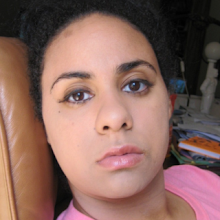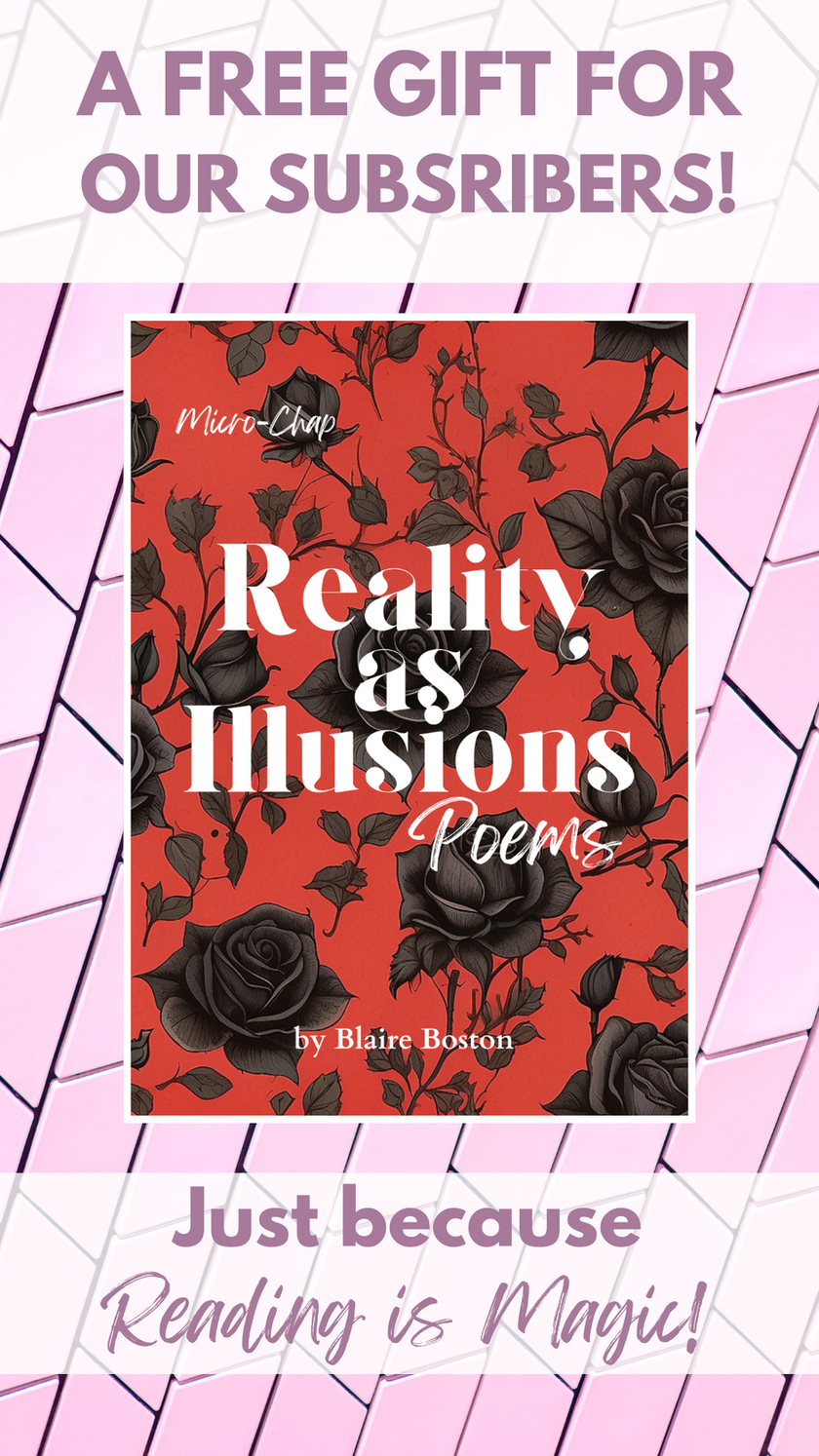A SHORT STORY
It was raining when he got up to look outside. He faced the window. From the corner of his eye, he caught his hazy, half-reflection. It seemed to be looking behind him. He could hear something, someone wail from one of the other rooms. The light outside was overcast, bouncing—dancing, maybe—between the wetness, between the clouds.
He had been trying to cough something up since morning. By the afternoon, his mind had given up the attempt; but his body held on. The idea that something was there—planted within him—was not an easy thing to let go of even at his age. It wasn’t until the rain started, soothing him with its tapping, rhythmic melody, that he began to relax.
The rain was trying to get up inside of him. He could feel it slowly creep upward, walk its fingers the length of his arm, trace his face; he welcomed it. That was all he needed. Maybe, sleep would return to him, now.
Outside his door, people walked about, treading shadows intermingled with flashing, yellow light—one, two, one. They moved fast—too fast—to be getting anything done, he thought. What were they doing? He lay backside down on his bed. Days turned into nights upon days and nights for him, this old man.
He thought of his family; spending time with them. The sound of squeaking wheels outside turned off a smile that had found its way onto his resting face. That noise was invented to torment him. He had determined that that’s what it would sound like when they would finally come and pick him up. “Well,” he thought; he’d be long gone by then. A mirror’s reflection would show what his firm grimace would look like when his soul leaves his body—a cold expression during an everlasting downpour. That day would be filled with his loved ones’ tears and his mercy. Acceptance would make an appearance, perhaps, but they’d remain sad all the same. That’s why he insisted on having the bathroom door closed at all times—just in the case of an accidental glimpse of his own face.
He turned his head to look out into the rain, again. It was falling, drowning the parking lot. It was the view that on a sunny day would send him into a cantankerous rant. “They’ve shoved me to the back of the building,” he’d complain. The downpour served as a sufficient distraction. And, just beyond the parking lot, there was a nestle of trees. The trees stood straight ahead, just in the way of eye level. The rain was a curtain of sheer strands gated before a fistful of green. Those trees out there made up a forest that he wouldn’t even try to get through.
It was a good thing he was lying down and face up as usual; because, when he finally turned his gaze away from the window, he saw a familiar face...no, there were three familiar faces. Sam, Ronnie, and Junior.
Junior smiled at him. As he grew older, his eyes spread further apart as the result of Time’s creative efforts; his mouth etched a negative parabola.
“You always sneak up on me when I’m ‘bout to do something,” he mumbled under half-closed eyes. He smiled back as he spoke, though, teasing.
“Well, you always up to something, anyway. Why do we always have to wait on you?” Jamie replied.
Russ kept quiet the whole time, while Sam was as inquisitive as a six-year-old having fun with his friends.
✴✴✴
I remember when I was just a po’ little boy in Asheville, North Carolina with dirt in my hair and nothing in my pockets. But, there was always something on my mind. I used to walk up the streets all by myself, whistlin’ to a tune that I could keep up in my head for ages upon hours. My life was simple then, them dust-kickin’ days. And my shoes was fallin’ off and my Mamma—that golden-eyed lady with the long Indian hair and arms made of songs—was with me in the twilight and fireflies lit up in the sky. There were ‘bout four o’ five kids in that house, but to her, I was the only one.
✴✴✴
When he opened his eyes, he was staring at an I.V. drip. The top of his hand pocketed the dewy, salty substance as it trickled down into him. They were tired hands, veins raised, cold as ice.
He said nothing, only slightly acknowledging his doctor’s presence with his eyes. The smell of the doctor was non-existent. He was as un-drawn as his white coat. However, he always smiled down at his patient.
Dr. Smith was there again on this day with his chart. He was talking about the drugs, the time, when and where they were going to cut, transfuse; and, he was talking about when the family members should come.
The doctor spoke the old man’s name in soft tones, but he didn’t realize that his patient noticed. Everything in the room grew quieter as they spoke. But, the patient wasn’t really listening. He wasn’t really there at all. His body was there, bound to the bed. His eyes were scanning the doctor’s white coat, a watch, the second hand walking the round.
The patient’s mind lingered above them both. When he came back to present time, the doctor was gone. The smell of nothing that covered the room, previously, lifted. The patient went into the bathroom and relieved himself. He closed his eyes as he walked past the mirror.
✴✴✴
“Are you in there?” she asked as if in a hurry to get in there, herself.
“No.”
“Well, there are only so many places you could be. This isn’t such a big room, you know.”
“Well, then why you asking if you already knew where I was?”
She opened the bathroom door, smiling at him, her head bowed down so that she could look up at him with her big, begging eyes. “Please, don’t be so hard,” she said. When she said “hard,” she meant “difficult,” not “mean.” At this time, she was comfortable with her casual display of control; yet, she made it a point to never be in control in a way that he would notice. He noticed.
“I’ve been dealing with this child all day, and she’s getting tired. Just look at her.” She meant their four-year-old daughter. They had the same name—the girl and her father. Her mother thought that it would be trendy to call the girl by a man’s name. The child was too young to be bothered by her name, and in later years it would be a boon. The only time when the girl might find her name to be a problem would be during her terrible teens.
The old man looked at his little girl, and he saw her well. She was tired, as her mother pointed out, however, she was watching them both. In her quiet way, she was waiting for them to give her their attention. This child would always be waiting in the moments, days, and years to come. Time, for the little girl, was frozen when her eyes met her father’s.
“There’s my little baby,” he said, reaching down with open arms that called for her to “give him some sugar.”
They sat in the chair meant for visitors. He held his daughter in his arms. Her small back rested in the crook of his arm. She just listened to the sound of his breath as it was caught within, and then quickly escaped his chest. “Humm...,” she said, seriously, as if she was the doctor.
“Uh, Doctor, could you please prescribe me something for my freckles? I need something that will put me to sleep.”
“Don’t say that to her,” the child’s mother made herself known, then, as if she had been forgotten.
He said nothing, but understood, finally, that her chronic fear of being forgotten was perhaps, not unreasonable on her part. His attention would remain in the safest place—on his young daughter.
He closed his eyes very slowly to get his daughter’s attention. Her attention never left him, though; it was he who had to return to her. She was looking up at him, not angry that he had been momentarily distracted. She, unlike her mother, did not have the capacity to not get angry at him. “Not yet, anyway,” he thought with a chuckle.
The little girl’s hands were tiny mechanisms. They were devices used to grasp at and clench. She had a substantial grip that he imagined was meant for baseball players or people who needed to grab and latch onto things to draw themselves up out of danger.
This girl is tough, was his next thought. She’s a survivor. He refused to worry about this one.
And, he opened his mouth wide in exaggeration; then he let out a heavy wind. She closed her eyes and tried it, herself. It was the breathing game.
✴✴✴
In the car, it seemed as if the sky traveled with them, marked by the racing clouds. At first, she thought she could catch one with her little paws, but she could never win that game.
Her hair blew in the wind in fine, curly strands. She didn’t worry about losing the bow that her mother had meticulously attached to her head. “What color is the wind?” she asked, but her mother wouldn’t answer. So, she turned her head back so that she could feel the air brush against her face. “I can feel it, but I can’t see it! I think it’s white…or blue.”
She leaned over more so that she could catch larger tufts of it, dragging it through her fingers. The rushing air was a ball that she squeezed or a ribbon that she could pull through the distance they made as they traveled further and further. “How fast are we going?” she asked her mother.
“Fast,” her mother said.
The girl turned back to face the rushing air, this time sticking her head out of the window in greeting.
“Get down, and sit in your seat,” her mother reached over, grabbing her by the back of her pinafore and yanking her down.
“But, I wanted to feel it,” the little girl said. She knew what she was supposed to do; She remained seated for the remainder of the trip. A blockage took seed inside, though, a small thing, which would stay until she understood how to rid herself of it. Until then, however, she was the bearer of an internal parcel she couldn’t unwrap. The feeling of being thwarted by her mother and not being able to express that feeling to her mother were the roots of the blockage.
“But, what are we going to do? It’s my birthday! Where’s Daddy?” It was a string of questions that she let out in front of the tall, white door.
“I’m taking you to see your Father after you let me pick up this cake.”
“I don’t want to go. What about the party?”
“Your Daddy is waiting. And, the party will be the three of us.”
“But, will Daisy be there?”
“I don’t think so. Did you call and ask her?”
“No.”
“Well, then.”
There was a day’s worth of frowning on the little girl’s face, even once they entered the shop. “Can I taste one?” She hoped that like at the ice cream parlor, she could try a few.
“Ask the man at the counter.”
She walked up to the man but said nothing.
He held his head back in laughter. “Don't worry, I have the same problem talking to others. I'm kinda shy. She'll get over it," he put his hand over his mouth and turned his head toward her mother, but spoke loudly enough for everyone to hear. "And, I know I have something over here for her to try. I made a huge mess of cakes for this woman who still hasn’t come by...,” he chatted to himself as he went into a back room to gather some samples for the little girl.
✴✴✴
“I wish I had a pink birthday cake,” she told her mother as they sat beside a large window.
“Don’t put your hands on the glass,” her mother said in earnest.
“And, if I had a pink birthday cake, I would be able to...,” she trailed off as she couldn’t think of what she would be able to do at that moment.
“Put that napkin in your lap, like this,” her mother said.
“But look, Mommy, your dress is pink,” she said while following her mother’s instruction.
“I know, like yours.”
“But, mine is light pink and it has yellow bows. Your dress is hot pink.”
“Fuchsia.”
“What?”
“Don’t say ‘what.’”
“And, I don’t want fish and soup. I want something else.”
“Do you even know what you want?” Rolling her eyes, she added, “Little girl.”
“Well, the man took...and I couldn’t see what I wanted.”
“He took the menu.” Her mother said with a grin, “And, you always get the same thing. I thought, for your birthday, I’d get you something else. You’re five, today.”
“I want a pink burger because I’m five.”
“Can you show me how many that is on your hand?”
Her daughter showed her, and said, “But, if I had a white cake, then it’s not the same. A white cake tastes different, and today is pink like a flower.”
✴✴✴
Cream-topped curtains cover the living room windows; they are as sheer as soft mist. They don’t move and they blot the sun. On a bright day, a glowy haze runs through them.
The curtains stand above the ground over a soft, ivory-colored carpet. And the ceiling above is a shadowy blue-upon-white.
A child enters the room, looking through the window that is perched before the shrubs. Green, not pink, is the girl’s favorite color. Or maybe, it’s blue. Cars pass by on a lazy Saturday. Their distance is far enough to keep her safe. She’s closed indoors, in the quiet of a day, lonely and controlled.
The curtains are comfortable to touch in their smooth beckoning. They won’t be pulled or stripped; they seem free and unbound. There is only the shadow-echo of the sheers as they dance above the air. The air escapes from below, from the vents.
Outside, it’s hot and the deception of the cool, indoor temperature is what keeps the girl inside and out of trouble.
She’s waiting for her mother to say it is time to go. She’s climbed to the top of the “good” sofa, to wait. She’s staring outside as she waits—making memories, waiting to see her father. She’s waiting for the day to turn from white to pink.
✴✴✴
“You going to eat that piece of cake?”
“No,” he said as if she were a fool to ask.
“Well, why’d you let me cut it, then?”
Their daughter moved in front of the bed where her father sat. Her eyes never left the image of her father. She was still playing as she could do in any situation.
Pulling at his finger and feeling his paws, she said, “Daddy is a bear.” She smelled him, too. She remembered when he smelled different, like the leaves he burned in the fall; but, now, he smelled kind of sweet. She would remember this sweet smell later in life when visiting her friend’s dying uncle. At this time, it was a puzzling smell that made her scrunch up her nose as she continued to play.
“Why you got that look on your face?” he asked. He was still laughing. The girl took no offense to his laughter. It was always as if he was laughing...with...her.
“I don’t know.” By now, she was sitting beside him. In a few moments, she would be standing behind him on the bed. First thing, she grabbed his shoulder for balance. “You have hairs on your shoulders,” she said to herself; she then, answered herself, “Cause he’s a bear.”
“And, your hair is so tough,” she said “tuff” instead of “tough.” She worked her jabbing digits into her father’s hair. Because of the medicine, the doctor gave him, it was cotton, finer than ever.
He was different than before; her mother said that he was sick.
“Daddy, if I breathe like this, then you can catch it.” And, she blew.
He blew, too. And, they went on.
She closed her eyes and pursed her lips. Her face was round and smooth. Her lips were like jam and butter. She never smiled, though.
Her eyes were open, she seemed to never close them, and she looked deep into his eyes. He was sometimes shocked at how unafraid his child was. He could remember when he was like her, but time had pulled him so far away that it struck him in the face.
She sat down beside him and counted his fingers—those hard fingers. And, he had bristly knuckles. She whispered, “Bear.” Then, she asked, “Where are your rings, Daddy?” as if suddenly thrown into alarm.
“The doctor has them.”
“But why did he take them?” There was a furrowed brow.
“He’ll give ‘em back.”
“But why?” she asked the pillow beside her. Her sorrow was short, however, for she soon returned to the breathing game.
She breathed out and up to him. Automatically, he responded.
✴✴✴








0 Comments